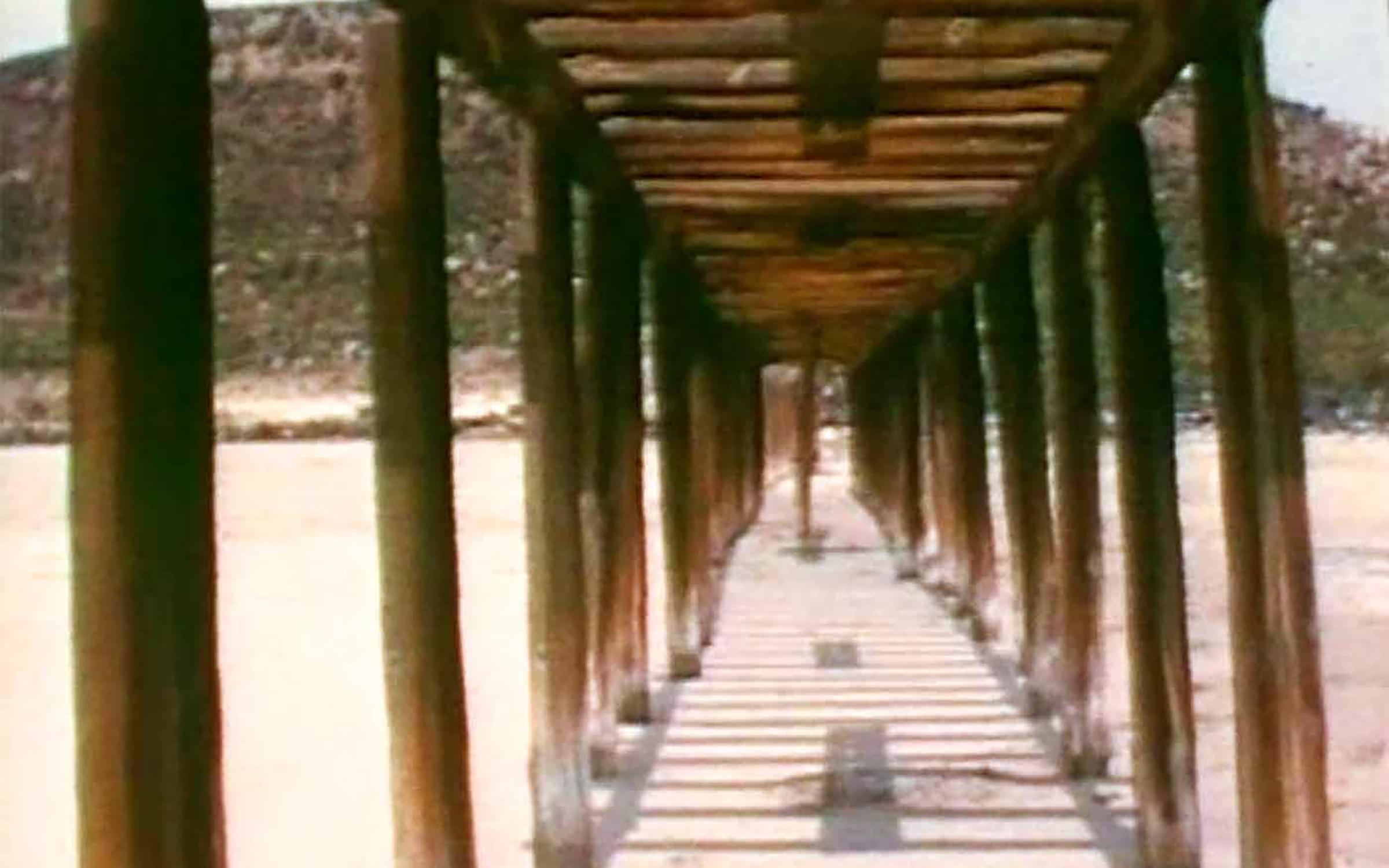
This never-before-exhibited film expounds upon Nancy Holt’s investigation of Utah’s remarkable landscape. Shot six years before the completion of Sun Tunnels (1973–76), her major earthwork situated in Utah’s west desert, Holt’s film explores the environment—manmade and natural—at Rozel Point on the north arm of Great Salt Lake. The film captures wood cabins, an amphibious vehicle, and remnants of oil drilling that have largely disappeared from the site today, but the tar seeps and salt-encrusted pelicans so present in this film remain a constant at the site.
Holt’s film shows the artist Robert Smithson, the gallerist Virginia Dwan, the Italian photographer Gianfranco Gorgoni, and one yet-to-be-identified-person as they prepare for the construction of Smithson’s iconic earthwork Spiral Jetty (1970), a giant coil of black basalt rocks that juts into Great Salt Lake at Rozel Point. The film contains a section Holt refers to as Mica Spread, where Smithson empties found bags of mica, a mineral often used as an insulator, at an abandoned cabin. Fifty years after Smithson built Spiral Jetty, Utah Sequences sheds light on Holt and Smithson’s time in Utah and invites conversations about entropy, timescales, and the human impact on the environment.
Utah Sequences is on loan from Holt/Smithson Foundation. It is presented in conjunction with this year’s fiftieth anniversary of Robert Smithson’s Spiral Jetty.
Nancy Holt, Utah Sequences (1970)
16 mm film transferred to digital file
Color, silent
Duration: 9 minutes, 26 seconds
Courtesy: Holt/Smithson Foundation © Holt/Smithson Foundation/licensed by VAGA at ARS, New York
Read more about Utah Sequences in this Hyperallergic article.
